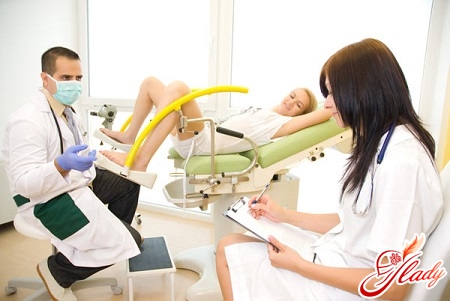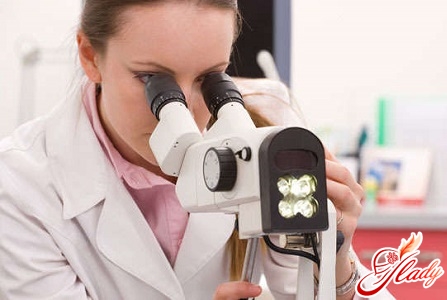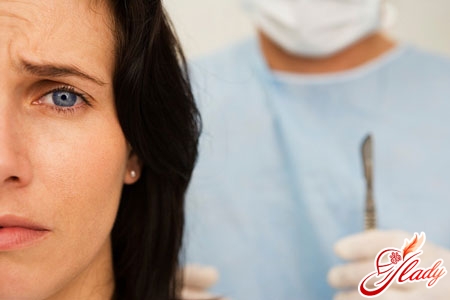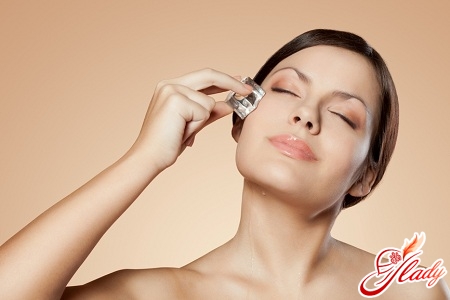
Colpitis (or vaginitis) is one ofthe most common gynecological diseases in women. According to statistics, every third woman has suffered from colpitis at least once in her life. Due to the widespread prevalence of such diseases of the vaginal mucosa, every woman needs to know what colpitis is, what causes the disease, what are the risk factors, signs, what is dangerous about inflammation, neglect, untimely detection and, finally, how to treat colpitis so that the disease does not become chronic. Such information is extremely important and requires comprehensive consideration.
Causes of the disease
Colpitis symptoms are quite pronounced inwomen. This disease is caused by pathogenic microorganisms, such as trichomonads, pinworms and gonococci, which enter the vagina due to poor hygiene (dirty clothes, unwashed hands), mechanical irritation of the mucous membrane by rings and spirals, wearing underwear made of synthetic fabrics, and sexually transmitted infections. Sometimes girls aged 5-12 also show signs of the disease. Colpitis is caused in this case by measles, flu or scarlet fever, the infection from which enters the vagina with the bloodstream. This disease can be contracted by women with diseases of the genitourinary system, leading a promiscuous sex life, or women who use intrauterine contraceptives. Senile colpitis is also distinguished, which occurs due to dryness and wrinkling of the mucous membrane of the vaginal tissues. But the vast majority of medical workers consider colpitis in women as a venereal disease directly related to sexual activity and childbearing fertile age. Colpitis caused by sexually transmitted diseases is especially dangerous. If it is not detected in the early stages, it can spread to neighboring organs, which can lead to serious consequences for the entire reproductive system. Colpitis rarely causes infertility, this is possible only in particularly advanced cases, but in any case, it is not worth risking your health.
Diagnosis of the disease
The following are typical for colpitis in women:Symptoms: inflammation and swelling of the mucous membrane, sometimes spreading to the buttocks and thighs. Women suffering from colpitis have increased leucorrhoea discharge; for chronic colpitis, admixtures of pus and blood are likely. Discharge during colpitis in women can have an unpleasant odor, like rotten fish. Most often, women with colpitis complain of burning and itching of the genitals, aching pain in the lower abdomen. Colpitis is often accompanied by menstrual cycle abnormalities, painful urination and discomfort during intercourse. Acute colpitis is characterized by elevated temperature. Diagnosis of colpitis in women involves a visit to the doctor. The attending specialist will conduct an external examination of the genitals, take masks of the mucous membrane and urethra, which are used for laboratory study. Sowing helps to determine the sensitivity of microorganisms to different types of antibiotics. The most effective and informative method for researching and identifying colpitis in women is DNA testing. This method allows not only to reliably identify the specific causative agent of colpitis, but also to most effectively create a treatment program for the disease, select an antibiotic or antifungal drug, and adjust local therapy. Colpitis treatment is more effective the sooner the patient consults a doctor. Therefore, at the slightest sign, such as discomfort, itching, burning, pain, unpleasant odor or unusual discharge, you should visit a gynecologist.
Ways to get rid of the disease
Treatment of colpitis directly depends on the causesits causes. The disease should be treated taking into account all possible functional disorders and concomitant diseases. Sometimes, colpitis treatment involves restoring normal hormonal metabolism and correcting ovarian function. Therefore, effective treatment involves a comprehensive examination and diagnosis of the body. Colpitis treatment imposes a ban on all forms of sexual contact for at least 2 weeks. Sexual rest is very important, otherwise the patient is at risk of chronic colpitis, which is much more difficult to treat. At this stage, it is important to strictly adhere to all the doctor's recommendations. If he recommends prolonging sexual abstinence, do not neglect such advice. All partners should be treated for colpitis, and the treatment may differ for a man and a woman, and even for same-sex partners, because the body, microflora and immunity of each person are unique. Colpitis is treated differently, depending on the pathogen, form and stage of the disease. Depending on all the combined factors, the doctor selects the optimal antibiotic that destroys the infection. If colpitis is caused by a fungal infection, then the specialist prescribes antifungal drugs. Regardless of the nature of the pathogen, to cure colpitis, the doctor will prescribe antibacterial drugs and means for normalizing and restoring the microflora of the vaginal mucosa. At the same time, the gynecologist usually prescribes local treatment: sitz baths with medicinal herbs, antimicrobial suppositories and ointments, douching, washing, insertion of medicinal tampons. Colpitis with the help of local therapy is treated primarily by careful hygiene of the genitals. As an addition to therapy, it is possible to take general tonics, vitamins, herbal preparations and immunomodulators. Remember that colpitis is a venereal disease, so it can be treated only on the recommendation of specialists. Self-medication is unacceptable, otherwise there is a high probability of complications and even the transition of colpitis to chronic. This stage of the disease is fraught with serious complications and consequences, so you should not allow it to appear.
General recommendations
Colpitis is treated not only with medicationsmedications, but also a special diet. It is not surprising, because even such intimate diseases are directly affected by food. Colpitis responds best to a gentle, dairy-vegetable diet, without sour, spicy, smoked, sweet and salty dishes. The fact is that colpitis irritates the walls of the uterus and vagina, makes them swell and increase, causing pain. A corrected diet can reduce pain and promote recovery. Colpitis does not imply the appointment of a large amount of fluid, because the latter increases the swollen tissue of the mucous membrane. To neutralize colpitis, you need to try to drink as little liquid as possible. It is better to give preference to fermented milk products, which have a beneficial effect on the microflora of the body. Colpitis is often treated with herbal medicine, which is an addition to the main therapy. However, the harmlessness of herbal preparations in this case remains questionable, so any plant and decoction must be approved by a gynecologist. Let's take, for example, the common and beloved by many chamomile. It would seem to be a harmless anti-inflammatory decoction. However, it cannot always cure colpitis. For example, a woman with normal microflora has heavy discharge in the second half of her menstrual cycle. If you play it safe and douche with a herbal decoction, you can simply destroy the protective stick. But in case of a pathology, which is sometimes colpitis, chamomile is simply irreplaceable. It is best to agree on taking any medications or folk remedies with a medical specialist. Colpitis is most often treated with a slightly acidic solution for douching and washing. For example, a solution of lemon juice or vinegar shows unusually good and fast results in curing colpitis. In the first case, you will need 1 tablespoon per 1 liter of water, necessarily boiled and warm. In the second case, to cure colpitis, you need to take a 6-9% vinegar solution. For 2 liters of water, you will need 3 tablespoons of vinegar. Such rinsing will strengthen the protection of the mucous membrane and help overcome colpitis from the inside with the body's own efforts. If the treatment is not effective enough, the body is prone to relapses or ovarian hypofunction is pronounced, the doctor may prescribe local application of estrogenic hormones, most often in the form of emulsions, to cure colpitis. Folk remedies are designed to remove inflammation and itching; they cannot cure colpitis on their own. Upon agreement with the doctor, you can lubricate the mucous membrane with sea buckthorn oil at night for dryness. Rosehip decoction will help with burning and itching.
Prevention of disease
Colpitis can complicate our lives, thereforeIt seems logical to take the maximum range of measures to protect yourself from the disease. The very first rule to avoid getting colpitis is to carefully observe personal hygiene. However, you should not overdo it with the procedures, because very frequent washings, especially with the use of perfumes with fragrances, can disrupt the microflora and cause an allergic reaction. Therefore, it is important to observe personal hygiene, but without fanaticism. Take a sensible approach to the rules of hygiene of intimate life. Following simple recommendations will help to avoid many sexually transmitted diseases, such as colpitis. Protect yourself during sexual intercourse. A condom is a guarantee of protection not only from pregnancy, but also from sexually transmitted diseases. You should also take a responsible approach to the choice of a sexual partner. Colpitis is easy to catch during promiscuous sexual relations or unreliable partners. Therefore, in these matters you should be picky and careful. Colpitis can also develop from an allergic reaction to scented personal hygiene products (tampons, pads). It is better to exclude such things from use, giving preference to non-scented products. Properly selected underwear will also help to avoid colpitis. It is better to opt for natural rather than synthetic fabrics. Take care of the healthy microflora of your body: colpitis is difficult to take root in patients who lead a healthy lifestyle and eat right. Fermented milk products will be useful for the microflora, but it is better to limit sweets and desserts. Colpitis can occur due to mechanical, thermal, chemical damage to the vagina, with somatic infectious diseases, with a violation of the anatomical and physiological organization of the vagina, with a decrease in the endocrine function of the endocrine glands. Colpitis is also caused by the irrational use of antibiotics. Therefore, visit a gynecologist at least once a year, a preventive examination will help to avoid many troubles, such as colpitis and other diseases.









